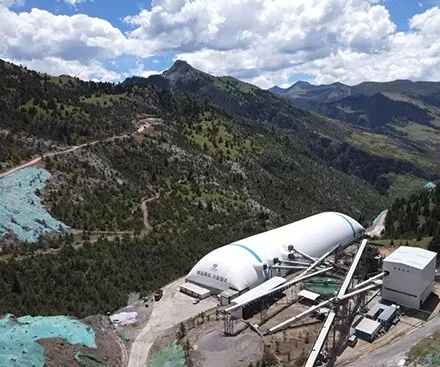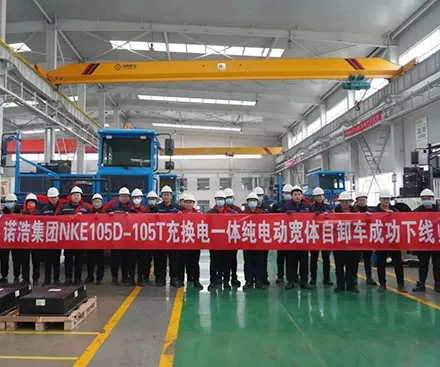Excavators are essential heavy machinery used in construction, mining, and various other industries. To ensure their optimal performance and longevity, regular maintenance and timely repairs are crucial. In this comprehensive guide, we will discuss the importance of excavator maintenance, provide a maintenance schedule, highlight the servicing frequency for mini excavators, explore the best tools for repair, delve into maintenance troubleshooting, and share valuable tips for excavator repair and maintenance. Additionally, we will cover the recommended greasing frequency and shed light on the function and types of claws on an excavator.
Excavator service includes maintenance and repairs to keep an excavator in good working order.
Proper maintenance of an excavator not only enhances its operational efficiency but also prolongs its lifespan. Regular maintenance helps identify potential issues, prevents breakdowns, reduces repair costs, and ensures the safety of operators and workers. By adhering to a structured maintenance schedule and implementing effective repair practices, you can maximize the productivity and reliability of your excavator.
You should check certain parts of your excavator regularly to make sure everything is functioning as it should. Maintain your equipment by following our excavator maintenance schedule:
Daily: Check coolant, engine oil and hydraulic system oil levels, and drain the fuel system water separator.
Monthly: Change the engine oil and filter as well as the final drive and swing drive oil levels.
Every three months: Prime the fuel system and clean the fuel tank cap and strainer.
Every six months: Tighten the battery hold-down, and replace the case drain, pilot and return in the hydraulic system oil filter.
As needed: Lubricate the adjustable gauge undercarriage frame, inspect and replace the battery, and reset the circuit breakers.
- Conduct visual inspections to identify any visible damage or signs of wear.
- Inspect components such as the boom, bucket, tracks, hydraulics, and electrical systems.
- Clean the machine thoroughly after each use to remove dirt, debris, and grime.
- Regularly change the engine oil and filter following the manufacturer's guidelines.
- Use the recommended oil type and adhere to the specified change intervals.
- Keep a record of oil changes to ensure timely replacements.
- Maintain clean hydraulic fluid for proper excavator function.
- Regularly inspect the hydraulic system for leaks and check the fluid level.
- Replace hydraulic filters as recommended by the manufacturer to prevent contamination and maintain optimal performance.
- Apply grease to specified points, including pins, bushings, and bearings, to ensure smooth movement and minimize friction.
- Follow the recommended greasing schedule for your specific excavator model.
- Regularly inspect tracks for signs of damage, such as loose or worn-out components.
- Adjust track tension according to the manufacturer's recommendations.
- Replace any damaged parts promptly to prevent further issues.
- Inspect the electrical system for loose connections, damaged wires, or faulty components.
- Ensure the battery is in good condition and all electrical connections are secure.
- Regularly test lights, gauges, and other electrical features to verify their functionality.
- Regularly inspect the radiator, coolant level, and hoses for leaks or damage.
- Clean the radiator and remove any debris or obstructions to maintain proper airflow.
- Ensure the cooling system is functioning correctly to prevent engine overheating.
The servicing frequency for mini excavators generally follows similar guidelines as those for larger excavators. However, it's crucial to consult the specific manufacturer's recommendations for your mini excavator model. Service intervals may vary depending on the size, usage, and operating conditions of the mini excavator. Adhering to the manufacturer's guidelines will help keep your mini excavator in optimal condition.
Despite regular maintenance, excavators may encounter problems that require troubleshooting and repair. Here are some common issues and their potential causes:
- Leaking Hydraulic Fluid: Leaks can occur due to damaged seals, hoses, or fittings. Inspect the hydraulic system for visible leaks and replace any faulty components.
- Weak or Slow Bucket Movements: This issue can be caused by low hydraulic fluid levels, a worn-out pump, or a clogged filter. Check the fluid levels and replace filters if necessary. If the problem persists, consult a professional.
- Faulty Wiring or Connectors: Inspect the wiring and connectors for any signs of damage, corrosion, or loose connections. Repair or replace the damaged components.
- Battery Issues: Ensure the battery terminals are clean and securely connected. If the battery is old or not holding a charge, consider replacing it.
- Difficulty Starting the Engine: This could be due to a weak battery, a faulty starter motor, or fuel delivery problems. Check the battery, starter motor, and fuel system for any issues.
- Overheating: Insufficient coolant, a malfunctioning radiator, or a faulty thermostat can cause the engine to overheat. Check the coolant levels and inspect the cooling system for any leaks or blockages.
Regular greasing is a crucial aspect of excavator maintenance. It reduces friction between moving parts, prevents corrosion, and extends the lifespan of critical components. Adhering to the manufacturer's guidelines for greasing frequency and points is essential.
Greasing should typically be done after every 10 to 50 operating hours, depending on the manufacturer’s recommendations. However, the frequency can vary based on usage intensity and environmental conditions. Regularly inspect the grease points and apply the appropriate lubricant to ensure optimal performance.
- Reduced Wear and Tear: Greasing minimizes friction between moving parts, reducing wear on components such as bearings, pins, and bushings.
- Improved Performance: Well-greased parts operate smoothly, enhancing the excavator's efficiency and reducing energy consumption.
- Prevention of Corrosion: Grease acts as a protective barrier against moisture and contaminants, preventing corrosion and extending the lifespan of parts.
- Cost Savings: Regular greasing helps prevent premature component failure, reducing the need for expensive repairs and minimizing downtime.
Regular maintenance and timely repairs are crucial for ensuring the optimal performance and longevity of excavators. By adhering to a structured maintenance schedule, using the right tools, addressing issues promptly, and implementing effective repair practices, you can maximize the productivity and reliability of your excavator. Always consult the manufacturer’s guidelines and seek professional assistance when necessary.

Jul. 23, 2022
View More
Jun. 15, 2022
View More
Jun. 01, 2022
View More